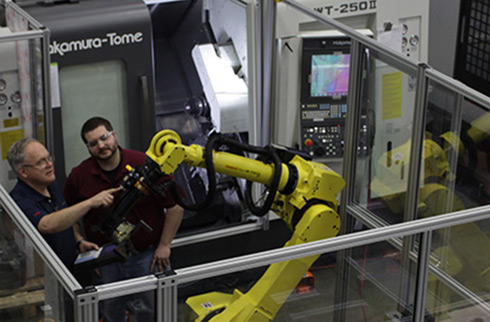
- Afrikaans
- Albanian
- Amharic
- Arabic
- Armenian
- Azerbaijani
- Basque
- Belarusian
- Bengali
- Bosnian
- Bulgarian
- Catalan
- Cebuano
- Corsican
- Croatian
- Czech
- Danish
- Dutch
- English
- Esperanto
- Estonian
- Finnish
- French
- Frisian
- Galician
- Georgian
- German
- Greek
- Gujarati
- Haitian Creole
- hausa
- hawaiian
- Hebrew
- Hindi
- Miao
- Hungarian
- Icelandic
- igbo
- Indonesian
- irish
- Italian
- Japanese
- Javanese
- Kannada
- kazakh
- Khmer
- Rwandese
- Korean
- Kurdish
- Kyrgyz
- Lao
- Latin
- Latvian
- Lithuanian
- Luxembourgish
- Macedonian
- Malgashi
- Malay
- Malayalam
- Maltese
- Maori
- Marathi
- Mongolian
- Myanmar
- Nepali
- Norwegian
- Norwegian
- Occitan
- Pashto
- Persian
- Polish
- Portuguese
- Punjabi
- Romanian
- Russian
- Samoan
- Scottish Gaelic
- Serbian
- Sesotho
- Shona
- Sindhi
- Sinhala
- Slovak
- Slovenian
- Somali
- Spanish
- Sundanese
- Swahili
- Swedish
- Tagalog
- Tajik
- Tamil
- Tatar
- Telugu
- Thai
- Turkish
- Turkmen
- Ukrainian
- Urdu
- Uighur
- Uzbek
- Vietnamese
- Welsh
- Bantu
- Yiddish
- Yoruba
Motor options for efficient car wash machines and maintenance solutions
The Essential Motor for Car Wash Machines
In the fast-paced world of automotive services, efficiency and effectiveness are paramount. One crucial component that ensures the functionality and reliability of car wash machines is the motor. The motor not only powers the washing mechanisms but also dictates the overall performance and longevity of the equipment. In this article, we will explore the significance of the motor in car wash machines, its types, and factors to consider when selecting the right motor for your needs.
Understanding the Role of the Motor
At its core, the motor is the driving force of a car wash machine. It transforms electrical energy into mechanical energy, facilitating the operation of various components such as brushes, water pumps, and conveyor systems. A well-functioning motor ensures that each wash cycle is both thorough and efficient, providing customers with a satisfying experience while maximizing productivity for business owners.
Moreover, as the industry evolves, car wash machines have become increasingly sophisticated. Modern systems may incorporate features such as touchless washing, multiple wash cycles, and drying services—all of which rely heavily on the motor's capability. Consequently, the motor's specifications such as power, speed, and torque are critical in delivering the desired performance.
Types of Motors Used in Car Wash Machines
There are several types of motors commonly used in car wash machines, each with its unique advantages
1. AC Motors Alternating Current (AC) motors are widely utilized due to their robust nature and high efficiency. They are ideal for operations requiring continuous running and are less prone to overheating, making them a popular choice for commercial car wash applications.
2. DC Motors Direct Current (DC) motors are known for their excellent starting torque and speed control. They are often used in smaller car wash systems or in applications where variable speed is necessary. While they may not be as durable as their AC counterparts, their responsiveness can be advantageous in specific washing setups.
motor for car wash machine

3. Brushless Motors An emerging choice in the car wash industry, brushless motors provide increased efficiency and lower maintenance requirements compared to traditional motors. Their design reduces wear and tear, potentially leading to longer operational lifespans and lower replacement costs.
Factors to Consider When Selecting a Motor
When choosing a motor for a car wash machine, several factors come into play
- Power Rating The motor’s power is crucial and should match the requirements of the washing system. A motor that is too weak may lead to inadequate washing performance, while an excessively powerful motor could result in wasted energy and increased operating costs.
- Environment Consider the environment where the car wash machine will operate. If exposed to moisture or harsh chemicals, the motor must have appropriate ratings for water and dust resistance.
- Energy Efficiency With rising energy costs and growing environmental concerns, selecting an energy-efficient motor can significantly impact operational costs and sustainability goals.
- Maintenance Needs Different motors have varied maintenance requirements. Understanding these needs will help in planning effective maintenance schedules, minimizing downtime, and extending equipment lifespan.
Conclusion
In conclusion, the motor is a vital component of car wash machines that significantly influences their performance and reliability. By understanding the types of motors available and the factors affecting their selection, business owners can make informed decisions to enhance their car wash operations. Investing in the right motor not only improves washing efficiency but also leads to satisfied customers and greater business success. As the industry continues to evolve, staying informed about advancements in motor technology will remain essential for anyone involved in car wash services.
-
Integrating Aqua Tunnel Car Wash in Shopping CentersNewsJun.24,2025
-
Gas Station with an Auto Car Wash MachineNewsJun.24,2025
-
Efficiency in Your Aqua Tunnel Car Wash: Power & Water-SavingNewsJun.24,2025
-
Car Wash Business with Advanced Auto Car Cleaning MachinesNewsJun.24,2025
-
Balancing Setup Costs with Aqua Tunnel Car WashNewsJun.24,2025
-
Aqua Tunnel Car Wash: Eco-Design for the Energy-Savvy EntrepreneurNewsJun.24,2025



